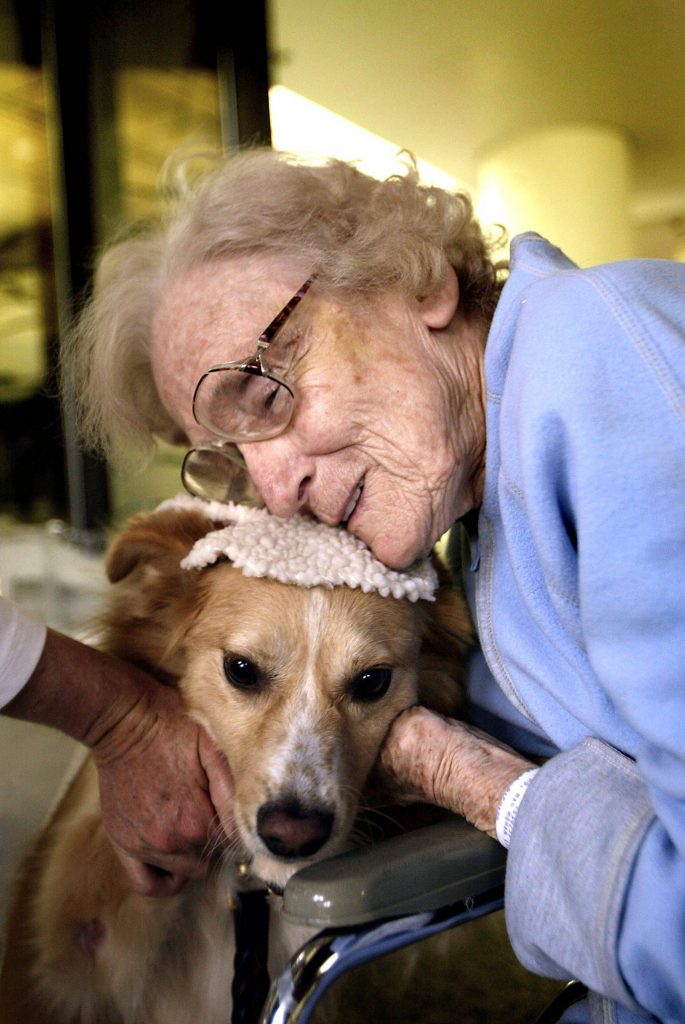
Pet Therapy and Dementia
Dementia is an umbrella term used to describe a variety of illnesses, which have different causes but produce similar symptoms. These symptoms vary depending on the cause of dementia, i.e. the dementia sub-type. Alzheimer’s disease, Vascular Dementia, Mixed Dementia and Lewy Body Dementia are the four most common sub-types and apart from these subtypes, the area and volume of the brain affected may impact on how the person experiences dementia.
Dementia causes damage to the brain, this damage can affect memory, thinking, language and the ability to carry out everyday tasks. As people move to the later stages of dementia, they will experience more symptoms and are likely to have significant memory loss and cognitive difficulties.
Pet therapy in residential care homes have proven to be the most effective type of therapy, it could improve a senior’s emotional, social, or cognitive ability.
The animals used for the therapy can range from domesticated pets to farm animals. The documented benefits of interaction with pets are mental, emotional, and even physical.
We all know that pets make us happy. Pet therapy has been linked to reductions in loneliness, agitated behaviours, dementia as well as increases in engagement, wellbeing, nutritional intake, and social interactions. Pets provide unconditional love and comfort. For the elderly with dementia, depression declines after they interact with a therapy animal.
A study from the University of Missouri-Columbia suggests that being around animals has a positive impact on the body’s hormone levels. This could explain why pet therapy can help people with depression and anxiety.